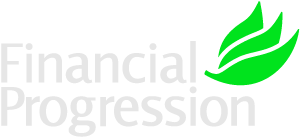From the perspective of any marketing contract compliance auditor, the results of the ID Comms 2016 Transparency Survey are music to their ears. For Financial Progression, the results mirror exactly the ethos on which the business was established: namely that the more brands understand the financial realities and business models of agencies, the more readily they will find a mutually beneficial way of working together.
Financial transparency of the marketing agency business model is the theme we talk about most with clients and it quickly broadens out into contractual arrangements, risk management and ways of working.
At the end of the day, transparency is about openness, communication and accountability. Do any of these 3 well and you’ll build trust. Do them all well and you are on your way to greatness.
At the moment the ‘trust and transparency’ debate is all over the national and international news: the Panama Papers and senior politicians’ reaction by publishing their tax returns; alleged corruption at FIFA and the IAAF; performance enhancing drugs used by professional athletes…the list goes on.
Why are all these events filling our news bulletins? Quite simply, it’s because those involved are perceived to have fallen short in demonstrating openness, communication and accountability.
It’s exactly the same in client and agency relationships. With the pressures of and demands on marketing budgets nowadays, how they perceive each other has changed in recent years and, as the results of the survey show, many representatives from both sides have yet to find a mutually beneficial environment in which to operate.
There’s a lot written about agencies falling short in terms of openness, communication and accountability. Based on our experience carrying out contract compliance audits of client/agency contracts, clients are not always perfect in these key areas either.
If you agree that a close, trusted relationship between clients and their external marketing agencies will tend to deliver a stronger marketing performance, we all have a responsibility to make that reality. So how can matters be improved?
It is our belief that the more aligned the parties are in their understanding of the commercial reality of their relationship from the outset, the more likely they are to work at it to ensure it endures.
As a result, it makes sense for clients to consider the following:
- What degree of transparency is it reasonable for your agencies to provide? In which areas?
- How much better could your agency relationships be in the long run if you were able to capture these at the outset in a commercial agreement that you both felt had been forged through openness and mutual understanding?
- What tools could be at your disposal before and during the relationship to give you assurance that the transparency you’re looking for continues to be well-defined and the contractual terms have been implemented as intended?
In 2016, the issues boil down to the sharing of information and degrees of financial openness, with clients seemingly wanting as much as possible and agencies as little as possible. There appears to be a clear imbalance.
As in a marriage, time spent up front getting to know each other and setting clear expectations will help both parties to navigate coherently the problems that will inevitably arise. When supported by independent, objective monitoring and feedback that build mutual trust, those involved can remain focused on their common goal of achieving superior marketing performance.
They're gonna love this…
Related Buzz…
With advertising and marketing agency contracts, God is in the details
Before you sign on the dotted line, an eye for detail and the opinions of subject matter experts can save you loads of…
Trust in commercial relationships
“Trust me, I’m looking after your best interests.” A noble sentiment indeed, but how do you know whether your…
Hide and seek: The game of audit clauses in agency contracts
When you’ve audited as many commercial marketing contracts as we have, it would be fair to say that we’ve seen a…


